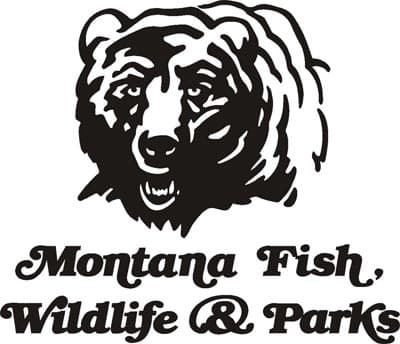One Grizzly Euthanized in Montana, Another Relocated on Front
Montana Fish, Wildlife & Parks 09.04.12

State wildlife officials this week have euthanized one grizzly and relocated another in separate conflicts near Augusta on the Rocky Mountain Front.
A 7-year-old, 514-pound, male grizzly was euthanized this morning after wildlife officials captured it on a ranch southwest of Augusta. The bear had killed at least three calves over the past two weeks on the ranch, said Mike Madel, Fish, Wildlife and Parks bear management specialist.
“Although this was the first instance of this bear killing livestock,” Madel said, “we have some flexibility to remove adult males. Plus there was a strong suspicion that he would continue to prey on calves.”
This marks the third time this year on the Front an adult male grizzly bear has been removed from the population after a livestock depredation.
On Aug. 29, Madel helped capture and relocate a sub adult male grizzly that had broken into a ranch out building near Augusta to get at livestock grain feed.
“This grizzly have been on the outskirts of Augusta for a couple of weeks but had not gotten into any trouble,” Madel said.
It was the first time the bear, estimated at 3 to 4 years old and about 540 pounds, had a conflict with humans.
“We relocated it at the end of Pike Creek Road near Marias Pass on the Lewis and Clark National Forest,” Madel said. “That’s about 75 miles away.”
With the Sept. 1 opening of the big game archery season and the upland bird season, FWP reminds hunters in bear country to be aware the animals are out and feeding.
Hunters Need to Be Bear Aware
Hunters along the Rocky Mountain Front, especially archers and bird hunters in riparian areas, need to be aware they are in bear country.
In recent years, grizzlies have wandered out onto the prairie away from the Front, following streams and river bottoms. Three years ago, a grizzly was killed in October by a bird hunter, after the hunter surprised the bear in thick cover about 8 miles north of Choteau and east of U.S. Highway 89.
Bears rely on the dense cover of the riparian areas to find food. This year chokecherries and buffalo berries are plentiful, and bears are still several weeks away from seeking a winter den.
That means hunters moving through thick brush along streams now and into November during the big game season could encounter a grizzly. Fish, Wildlife and Parks recommends hunters carry bear spray instead of a sidearm. Statistically carrying bear spray is better than carrying a pistol for personal protection in bear country.
In addition, FWP offers several tips for hunters in grizzly country:
- Avoid hunting alone and avoid hunting in dense cover.
- Learn to recognize signs of bear activity.
- After killing a deer or elk, immediately separate the carcass from the gut pile.
- If you have to leave the carcass hang it out of reach of a bear.
- When returning to a carcass observe the area from a distance for bear activity. Signs of bear activity include a moved or partially buried carcass.
- If a bear has claimed the carcass leave it alone and contact FWP immediately.
FWP has produced a brochure outlining some simple safety procedures for bird hunters in grizzly country. The brochures are available at FWP Region 4 in Great Falls and many license agents along the Front. For more information, call FWP in Great Falls at (406) 454-5840.

